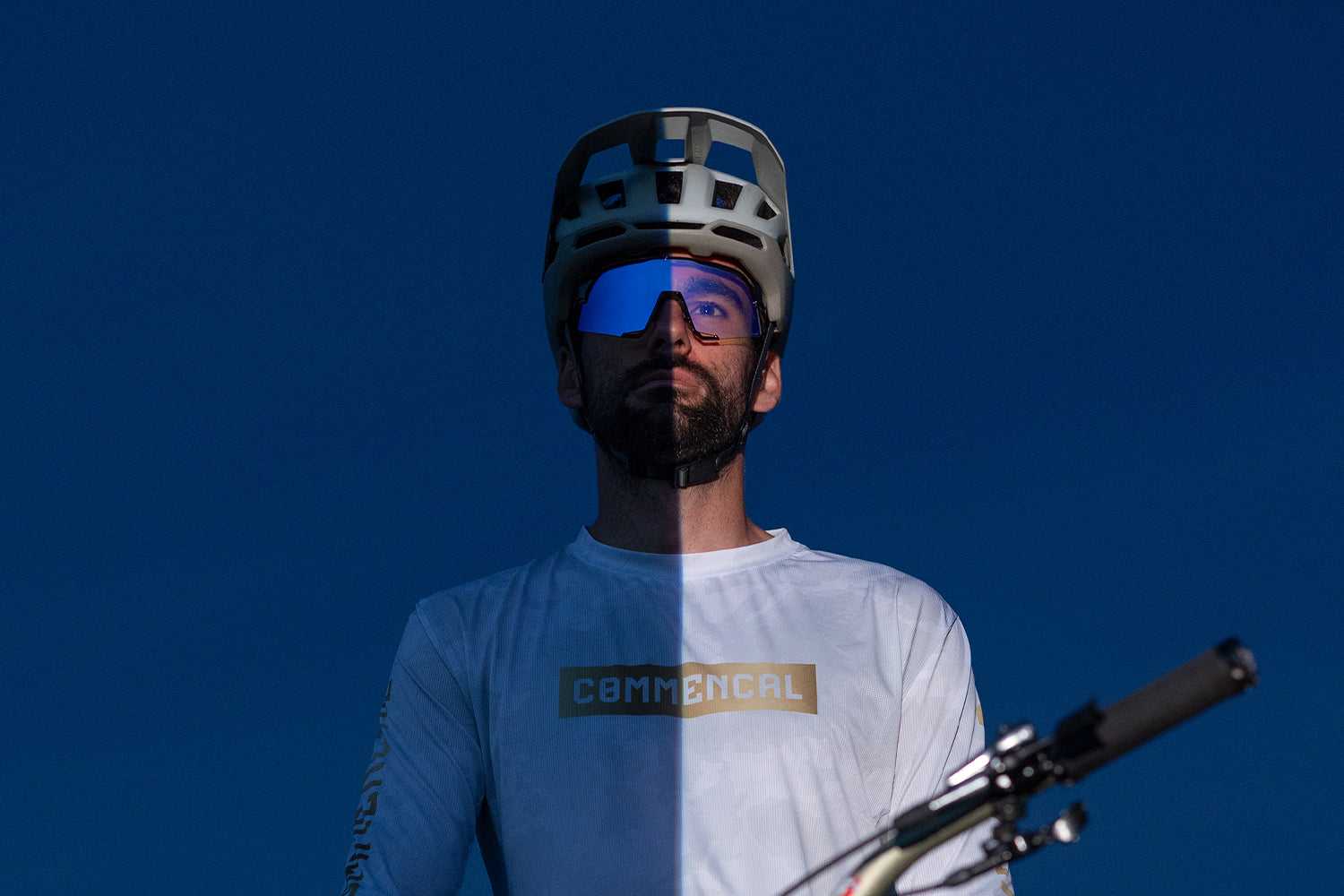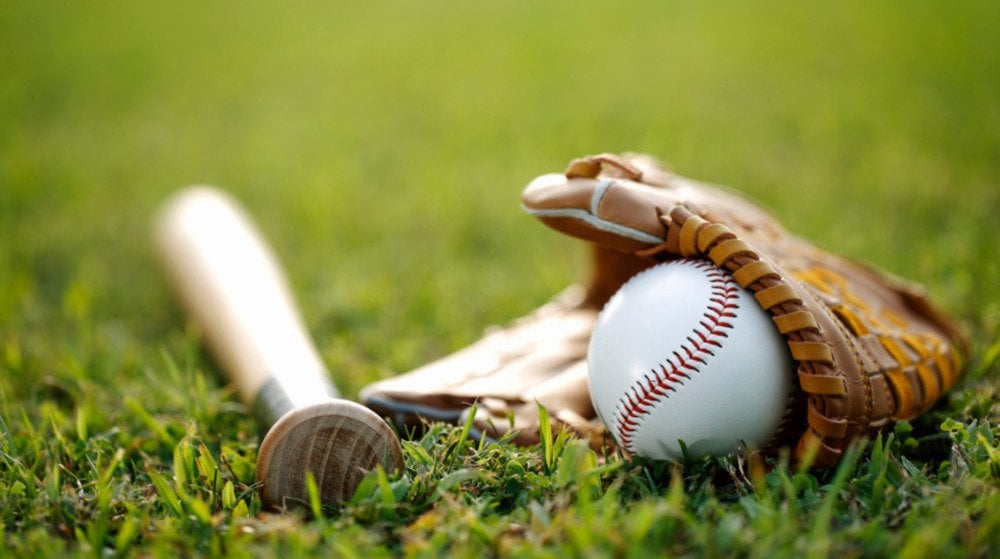Many baseball players opt for the 100percent range of glasses - usually either the Speedcraft, the S2 or the Tatis 23 LE. They are designed specifically for the sport, and provide excellent impact protection, reduced glare and use exceptionally high-quality materials.
However, what makes a pair of sunglasses suited to baseball? In this article we go through some of the most common lenses chosen by baseball players, professional and amateur alike, as well as some of the qualities you should look for when choosing your next pair of baseball sunglasses.
What are some of the most common sunglasses worn by baseball players?
Polarized lenses
Polarized lenses are a popular choice among baseball players because of their ability to significantly reduce glare. Polarized lenses contain a special filtre that blocks intense reflected light which can reduce glare from shiny objects and reflective surfaces like water.
For baseball players this leads to improved visibility and comfort, especially on bright and sunny days. Polarized lenses can help you massively when trying to clearly see the ball against the bright sky or the infield, making them a very practical choice for outfielders and infielders alike.
Photocromic lenses
Photocromic lenses are able to adjust based on different lighting conditions. These lenses darken in bright sunlight and lighten in low-light conditions, helping you see more clearly in varying environments. This adaptability is particularly useful for baseball players where games can run on from bright afternoons to dark evenings, and photochromic lenses eliminate the need for you to change glasses as the light changes.
Blue light blocking lenses
As the name might suggest, blue light blocking lenses filter out blue light, which is typically emitted by screens and other types of artificial lighting. If you are playing on a floodlit baseball field during a dark evening, blue light blocking lenses can help you more clearly see what’s going on on the field, and can help maintain good eye health and reduce fatigue.
Tinted lenses
Tinted lenses are a baseball staple. Different tints can enhance vision in specific lighting conditions - for example, amber or brown tints improve contrast against blue skies or green fields, making them perfect for baseball. Gray tints help with color perception and reducing brightness. They’re ideal on overcast or cloudy days and help you pick out the ball more easily. Not only do tinted lenses improve visual clarity but they also protect your eyes from UV rays.
High-contrast lenses
High-contrast lenses are designed to enhance visual depth and help you distinguish finer details. In baseball these can help you see the ball more clearly against different backgrounds - whether it’s the sky, the stands or the field. They work by filtering specific light wavelengths and enhancing the contrast between the ball and its surroundings. This feature is particularly beneficial for batters and fielders who need to quickly react to the ball.
UV protection and why it’s important
One critical feature of a good pair of baseball sunglasses is UV protection. UV protection ensure your eyes are shielded from the harmful ultraviolet rays of the sun - and prolonged exposure to UV rays can lead to eye problems like cataracts and photokeratitis (which is effectively sunburn of the eyes).
Baseball players often spend extended periods under the sun, and so the risk of damage to the eyes from UV rays is greater than in other sports. This is why it is so critical to ensure that you choose glasses with good UV protection, as they will help you maintain peak performance on the field.
Impact resistance
Baseball players usually prefer glasses with impact resistant lenses simply because fast-moving balls and bat debris pose a significant threat to eye safety. Impact-resistant lenses are designed to withstand forceful impacts, and provide essential protection against eye injuries.
Frame design and features
Specific sunglasses with frame designs and features that cater to the sport are commonly chosen by baseball players. The preferred frame design is usually lightweight and durable, and is made from materials such as polycarbonate or TR90. This offers flexibility and resilience against impacts. A wraparound design is also common, as it provides a wide field of vision and ensures the glasses stay firmly in place during rapid movements.
Frequently asked questions about the sunglasses baseball players wear
Are there specific sunglasses recommended for pitchers versus outfielders?
Baseball pitchers often benefit from sunglasses that offer clear vision with minimal glare and distortion, a secure fit and a slight tint for accurate pitch delivery. Outfielders, however, might prefer sunglasses with polarized lenses for glare reduction and enhanced contrast for better ball tracking. For both positions, UV protection and impact resistance are essential features to safeguard the eyes during the game.
How can players choose the right sunglasses for overcast versus sunny days?
Sunny days mean that gray or brown lenses are ideal as they will reduce glare and maintain color accuracy. For overcast conditions, gray or yellow lenses are better as they enhance contrast and improve visibility. If you find yourself playing in varying light conditions often, a pair of photochromic lenses would be ideal as they are able to adapt to different lighting scenarios.
What is the preferred sunglasses style for professional baseball players?
Professional players often favor wraparound sunglasses because they protect from side glare and debris. Some players choose aviator-style sunglasses or sport-specific designs with semi-rimless frames, as they provide a lightweight feel and unobstructed view, particularly beneficial for pitchers and batters.
What maintenance is required for baseball sunglasses?
Regularly clean your glasses with a microfibre cloth and lens specific solution. Other than this no maintenance is required, but ensure that if your glasses get damaged you should consult a professional to repair them.


